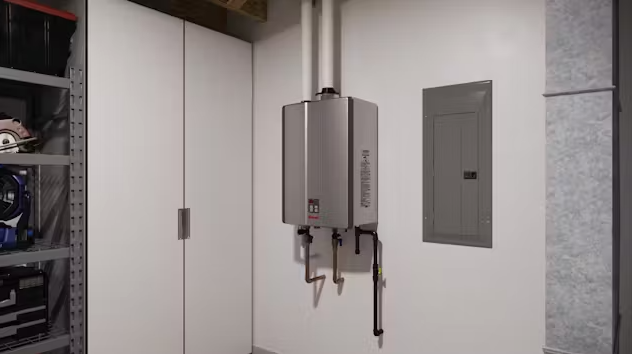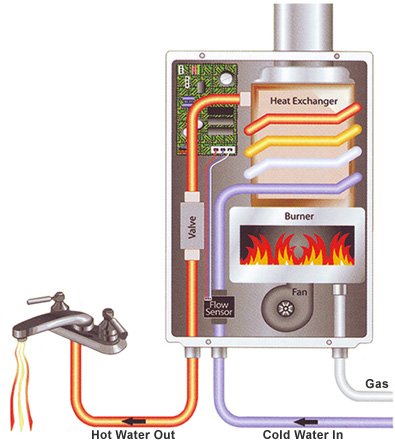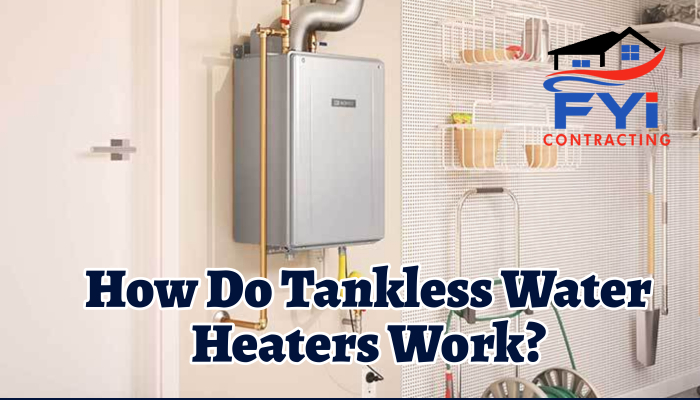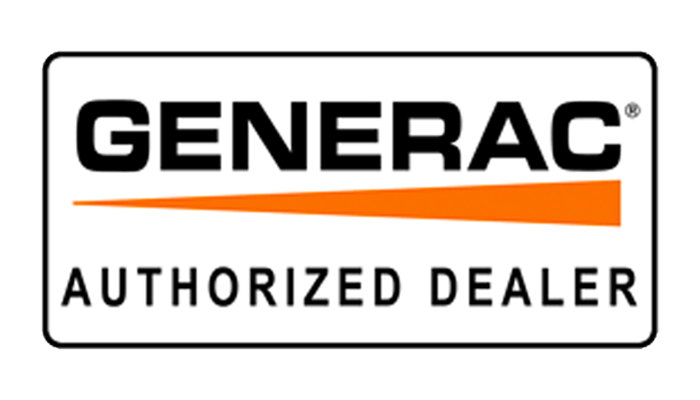If you’re considering upgrading your water heating system, you’ve likely heard about tankless water heaters. Unlike traditional water heaters that store and continuously heat water in a large tank, tankless water heaters offer a more efficient, on-demand solution. But how exactly do they work? In this blog post, we’ll explore the inner workings of tankless water heaters, how they compare to traditional models, and why they might be the right choice for your home.

The Basics: What Is a Tankless Water Heater?
As the name suggests, a tankless water heater doesn’t rely on a storage tank to hold heated water. Instead, these units heat water directly as it flows through the system, providing hot water on demand. This process eliminates the need for a large tank and ensures that you have a continuous supply of hot water whenever you need it.
Tankless water heaters are often referred to as on-demand water heaters because they only heat water when it’s needed, rather than storing it and keeping it heated throughout the day.
How Do Tankless Water Heaters Work?
The mechanics behind a tankless water heater are quite simple. Here’s a step-by-step look at how the system works:
- Cold Water Enters the Unit When you turn on a hot water tap, shower, or appliance, cold water is directed into the tankless water heater through a pipe.
- Water is Heated by a Heat Exchanger Inside the unit, there’s a heat exchanger—the core component responsible for heating the water. The heat exchanger is activated by either gas burners or electric coils, depending on whether you have a gas-powered or electric tankless water heater. As cold water flows through the heat exchanger, it’s rapidly heated to the desired temperature.
- Hot Water is Delivered to Your Tap Once heated, the hot water is delivered directly to your tap, shower, or appliance, providing a continuous flow of hot water without the need to wait for a tank to refill and reheat.
- No Standby Heat Loss Unlike traditional water heaters, which continuously heat water stored in a tank (even when not in use), tankless models don’t waste energy keeping water hot. This leads to increased energy efficiency and potential savings on your utility bills.

Key Components of a Tankless Water Heater
Understanding the main components of a tankless water heater can help you grasp how the system operates:
- Heat Exchanger: The heart of the tankless water heater, the heat exchanger is responsible for transferring heat from the heating element (gas burners or electric coils) to the water.
- Flow Sensor: This sensor detects when hot water is needed and triggers the heating process.
- Control Panel: Many tankless water heaters come with a control panel that allows you to adjust the temperature and settings, ensuring the water is heated to your preferred level.
- Exhaust System: Gas-powered tankless water heaters include an exhaust system to vent out combustion gases safely.
Types of Tankless Water Heaters
There are two main types of tankless water heaters: electric and gas-powered. The primary difference between the two is how the heat is generated.
1. Electric Tankless Water Heaters
Electric tankless water heaters use high-powered heating coils to warm the water as it passes through the system. These units are typically smaller than gas models and can be installed in tighter spaces. They are ideal for homes with lower hot water demands or for use in smaller applications, such as a bathroom or single appliance.
- Pros: No need for venting, smaller size, and easier installation.
- Cons: May not be suitable for homes with high hot water demand, potentially higher electricity costs depending on your location.
2. Gas Tankless Water Heaters
Gas tankless water heaters use a burner to heat the water. These units typically offer higher flow rates and are better suited for larger households or homes with high hot water usage.
- Pros: Can provide more hot water per minute, often more energy-efficient for larger households.
- Cons: Requires proper ventilation and gas line installation, which can increase the installation cost.
Energy Efficiency and Savings
One of the most significant benefits of tankless water heaters is their energy efficiency. Traditional water heaters continuously heat and reheat water in a tank, which can result in standby heat loss—energy wasted to keep the water hot when not in use. In contrast, tankless water heaters only heat water when needed, reducing energy waste.
According to the U.S. Department of Energy, tankless water heaters can be 24-34% more energy-efficient than traditional tank models, depending on a home’s water usage. For homes that use a lot of hot water, installing multiple tankless units can further increase energy savings.
Pros and Cons of Tankless Water Heaters
While tankless water heaters offer several benefits, they may not be the right fit for everyone. Let’s take a look at the advantages and potential drawbacks of these systems:
Pros:
- Unlimited Hot Water: Since tankless systems heat water on demand, you won’t run out of hot water, even during back-to-back showers or heavy appliance use.
- Energy Efficiency: Tankless models are more energy-efficient than traditional water heaters, which can lead to lower utility bills.
- Longer Lifespan: Tankless water heaters tend to last longer than traditional tank models. While a standard water heater may last 10-15 years, tankless units can last up to 20 years or more with proper maintenance.
- Space-Saving: Without the need for a bulky storage tank, tankless units are more compact and can be installed in smaller spaces, freeing up valuable room in your home.
Cons:
- Higher Initial Cost: The upfront cost of a tankless water heater can be higher than that of a traditional model, both in terms of the unit price and installation.
- Limited Flow Rate: Tankless water heaters may struggle to supply hot water to multiple fixtures simultaneously, especially in larger households. Installing multiple units may be necessary to meet higher demand.
- Installation Requirements: Gas tankless water heaters require proper ventilation, and both gas and electric models may require upgrades to your home’s electrical or gas system to accommodate the unit.
Is a Tankless Water Heater Right for Your Home?
Whether or not a tankless water heater is the right choice for your home depends on your hot water needs, energy goals, and budget. If you’re looking for a system that provides continuous hot water, offers energy savings, and takes up less space, a tankless water heater could be the ideal solution.
However, for homes with high hot water demands, such as multiple bathrooms or large families, you may need to install multiple tankless units or opt for a higher-capacity gas model to ensure you never run out of hot water.
Professional Installation by FYI Contracting
At FYI Contracting, we specialize in tankless water heater installation and maintenance. Our team of licensed professionals can help you determine the best system for your home’s needs and ensure it’s installed correctly to maximize performance and efficiency. Whether you’re upgrading from a traditional water heater or installing a new system for the first time, we have the expertise to get the job done right.
Conclusion: Experience the Benefits of Tankless Water Heaters
Tankless water heaters provide an efficient and reliable solution for your home’s hot water needs. By heating water only when you need it, these systems offer energy savings, unlimited hot water, and a longer lifespan compared to traditional water heaters. If you’re considering making the switch, FYI Contracting is here to help you explore your options and provide expert installation services.
Ready to learn more about the benefits of tankless water heaters? Contact FYI Contracting today to schedule a consultation and find out how we can help you enjoy hot water on demand with an energy-efficient tankless system.










